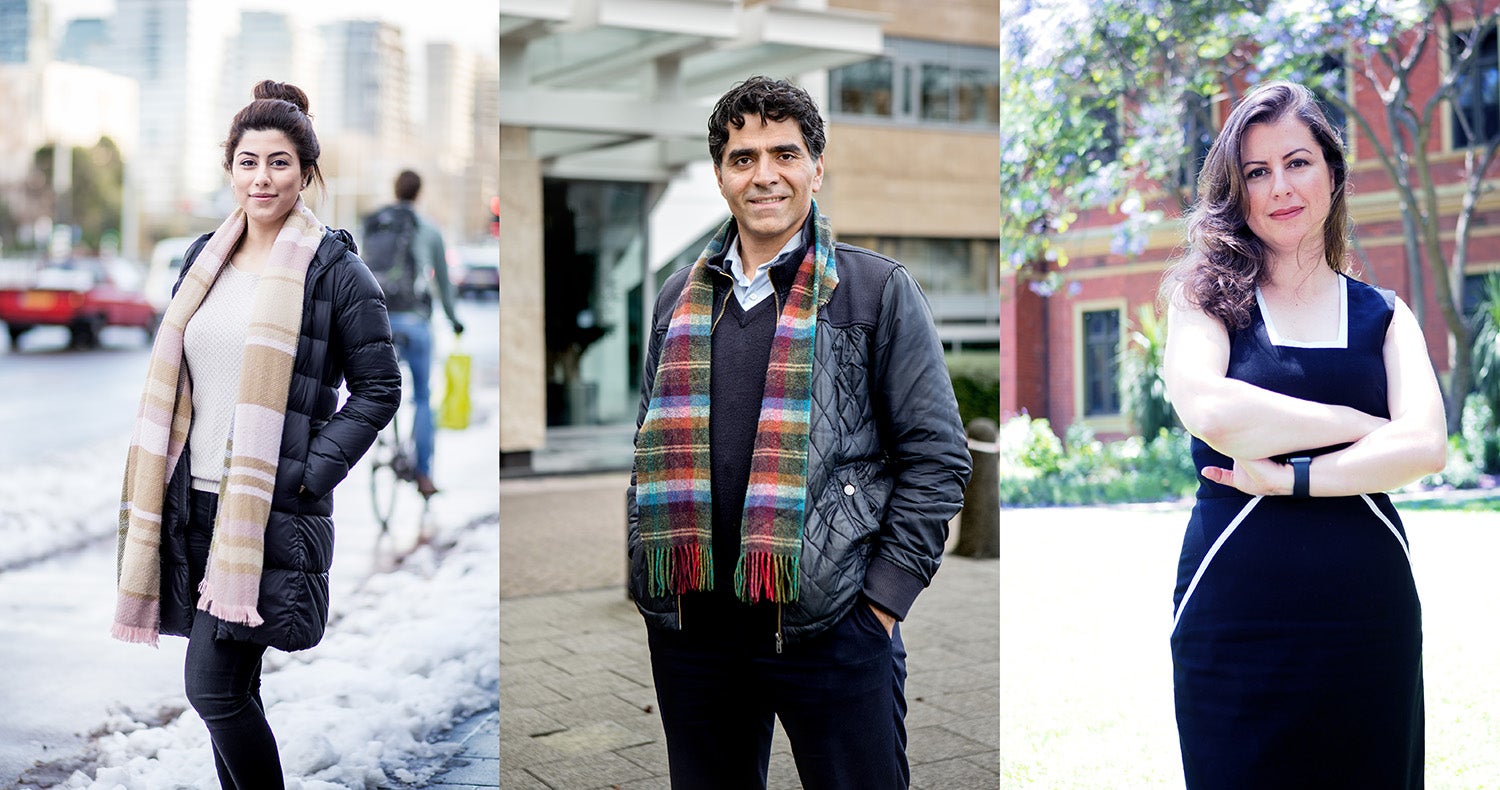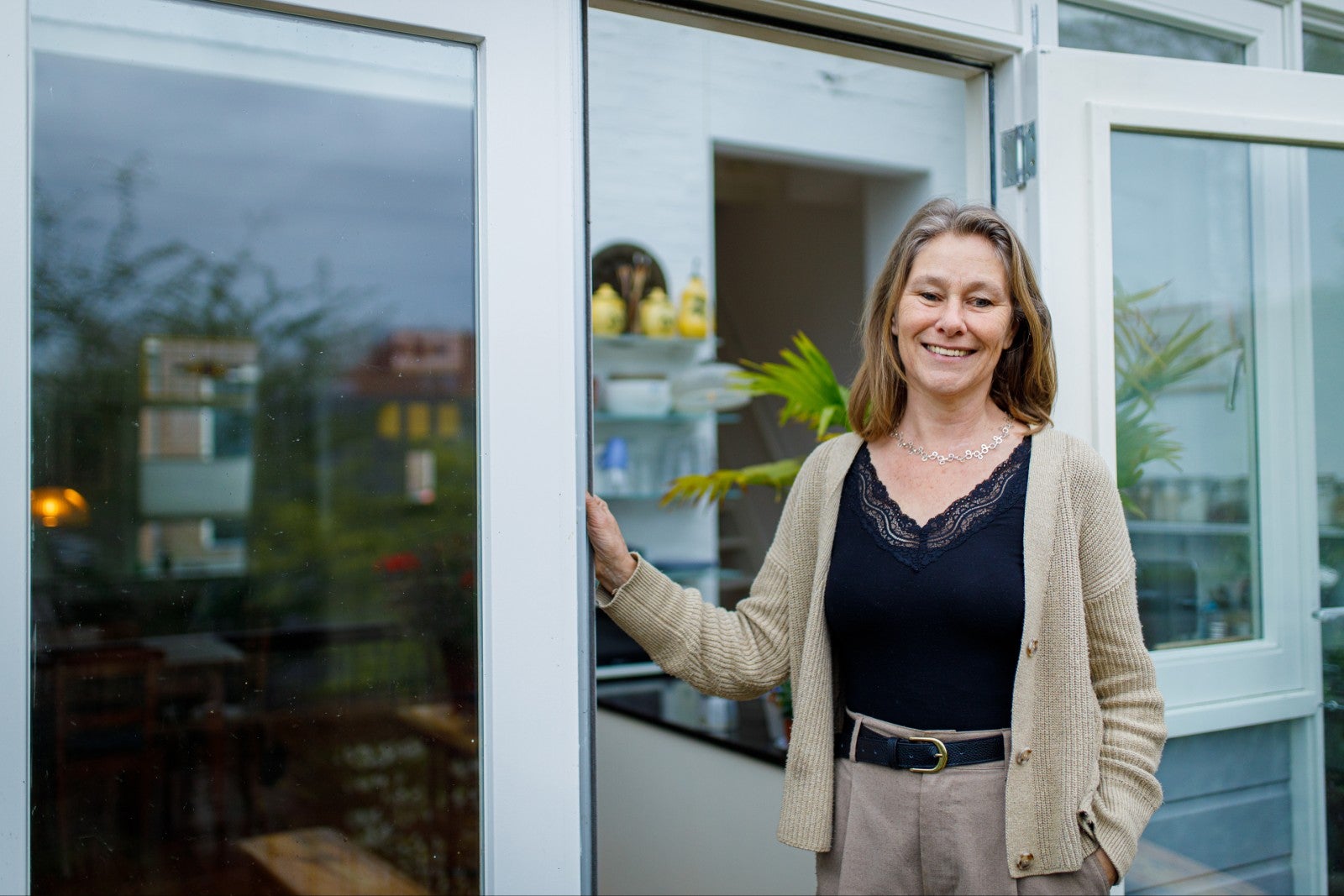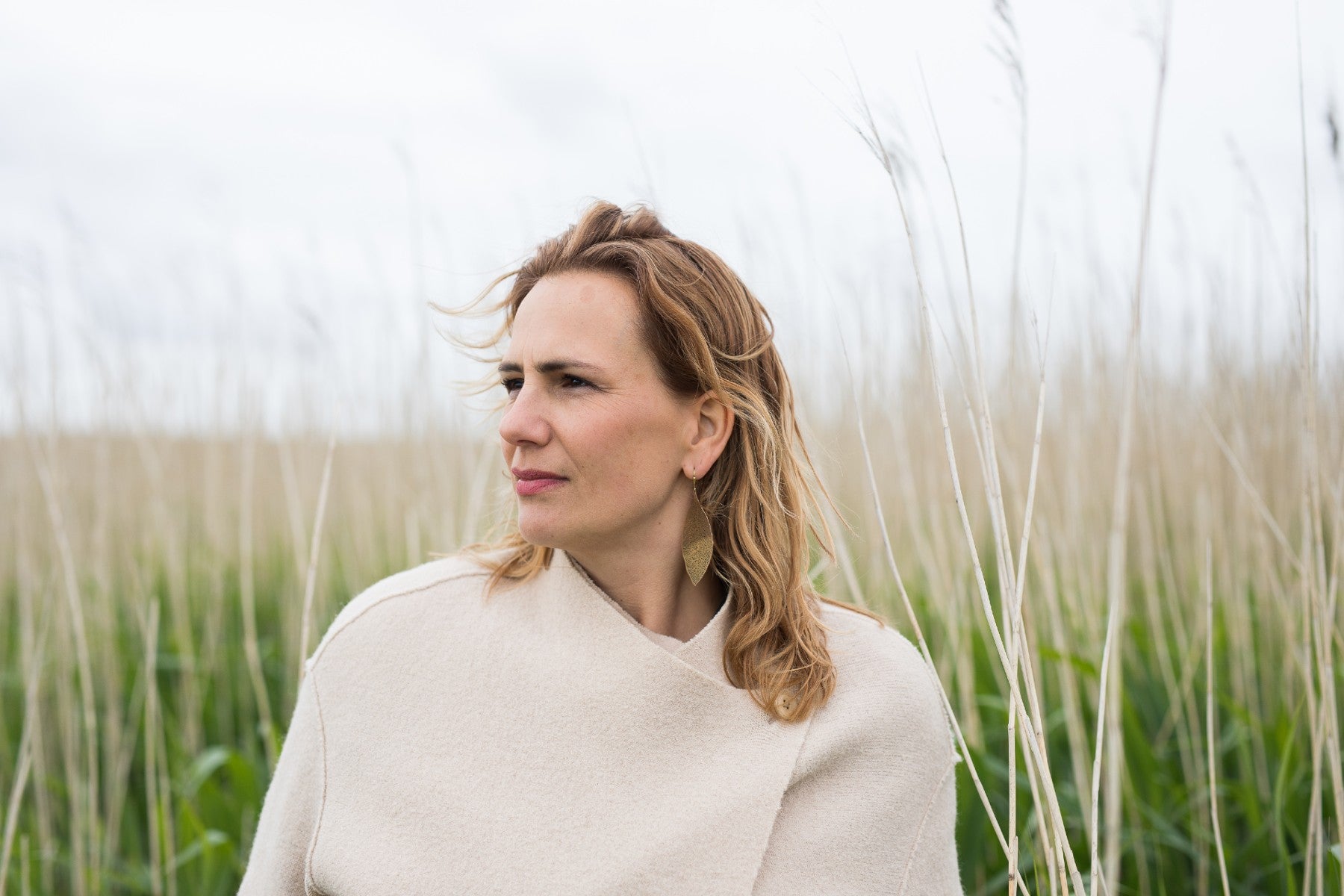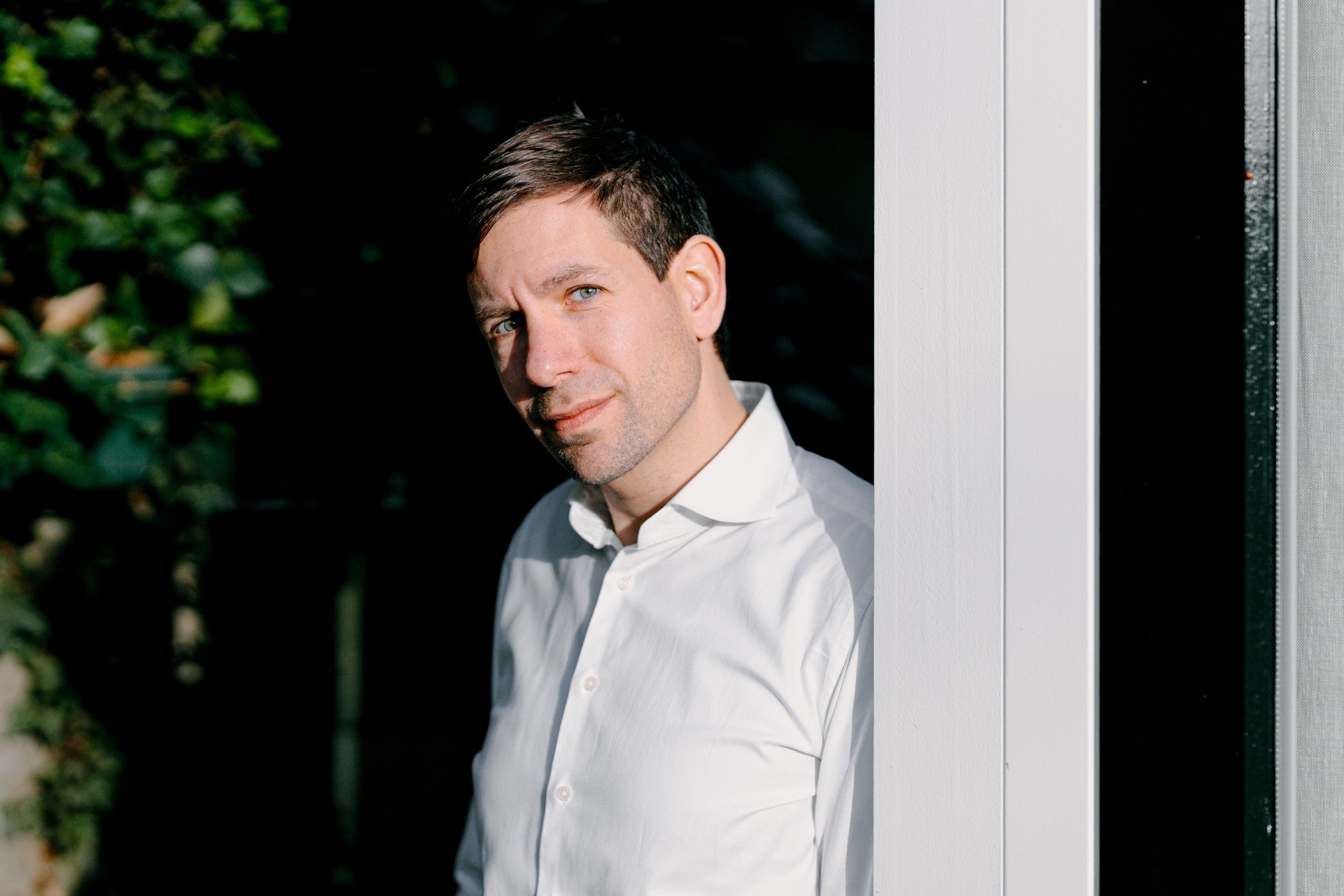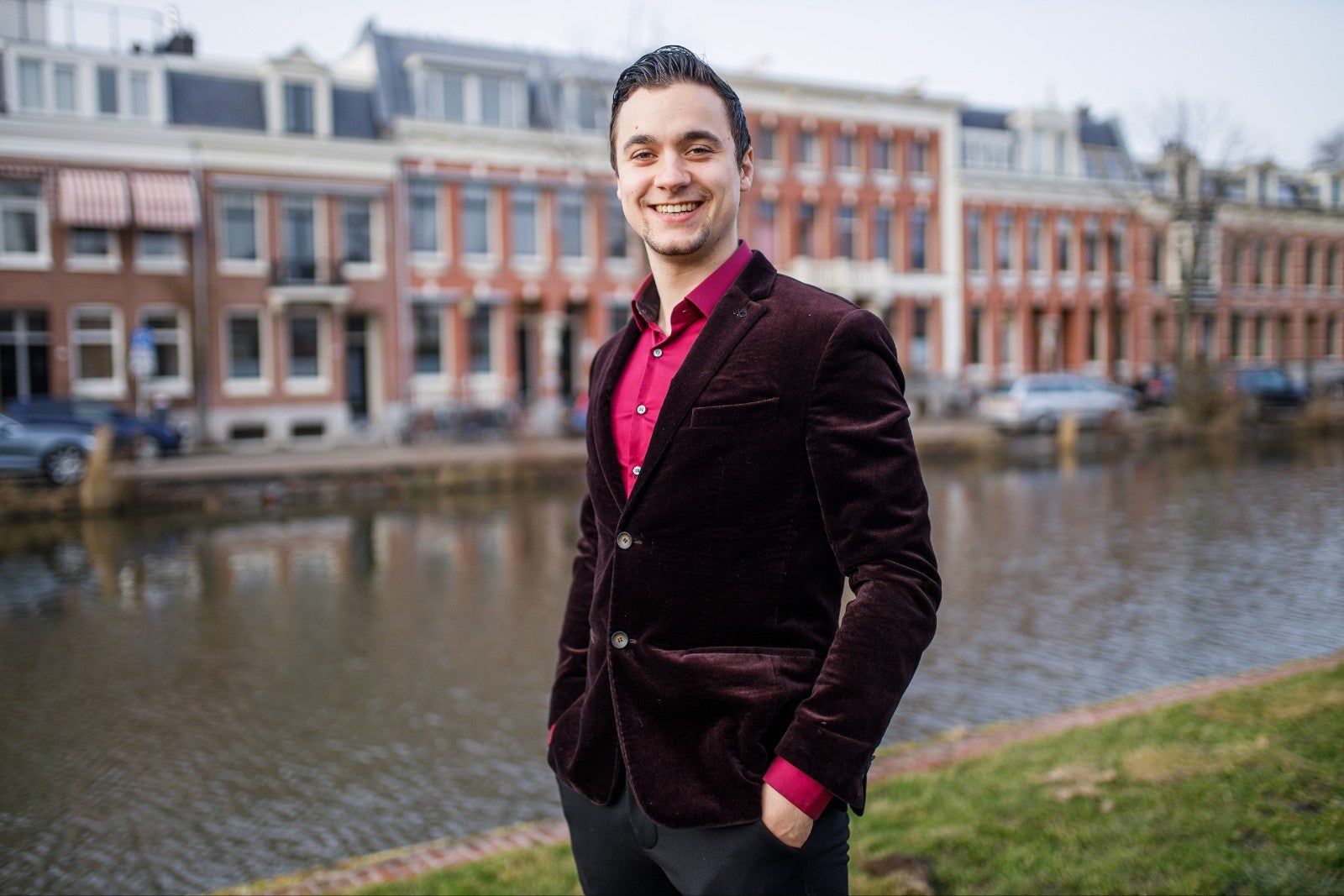The VU has more than 100,000 alumni. Where did they end up after their studies? In this section, we portray three alumni at a time. In this edition: three refugee alumni.
‘I sold my lecture notes as a side job’
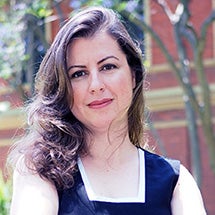
You fled from Albania and 19 years later, in 2013, you left for Melbourne for a job at the university. Does where you live still matter to you? ‘I was definitely curious about what else there was to discover, but the Netherlands is my second home and I hope to come back one day. I am married to a Dutchman, who I met at the VU, and my parents still live there as well. But in my profession, you get a lot of international opportunities, and you’re expected to grasp them when they present themselves.
What exactly do you do? ‘As an Associate Professor in Sociology, I investigate how parents with long-term unemployment influence their children. That fits nicely with my PhD research at the VU, which focused on the course of people’s careers after a period of unemployment.’
But you studied Business Administration? ‘I desperately wanted to attend university, but because we didn’t really know how the system worked at the asylum seekers’ centre, I ended up at a MEAO school when I was 15, instead of the VWO. Fortunately, you could go to the Amsterdamse Academie back then, where they’d prep you for university in just one year. However, this did limit you to financial courses: Business Administration was the only option.’
Did you have a hard time at the VU? ‘The first year was incredibly difficult. My prior education wasn’t of the highest level, I wasn’t in love with the course, the language was still difficult for me, and I had to get used to the university. The people at the student desk were a great help for me. The next years were more fun and a lot easier. My fourth year was fantastic, I was very honoured to attend lectures by professors who had written their own book.’
What was your student life like? ‘When I had a little bit more time, I had some great experiences at the Florendement study association, where we made investments in options and in the stock market. And I had a good group of friends who had also attended the Amsterdamse Academie. I sold my lecture notes as a side job, which was made possible by the student desk. I wrote two syllabuses that way.’ (RL)
If you want to know more about an academic future in Australia, you can send an email to Irma Mooi-Reci.
‘I considered quitting’
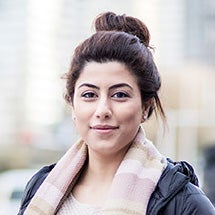
Shakiba Babri’s parents were politically active in Iran. Her father was executed when she was one year old and her mother ended up in prison. In 2009, she fled to the Netherlands with her mother, who had been released by then.
You’ve just graduated. What are your plans for the future? ‘I want to continue studying to become a dermatologist. The programme lasts five years, and you have to be admitted first. To increase my chances of getting a place, I want to spend a year as an ANIOS first, a doctor not in training.’
Why dermatology? ‘As a dermatologist in an outpatient clinic, you’ll see thirty patients in the morning and another thirty in the afternoon. It’s very active work, which suits me well. In the past, I wanted to become a neurologist, but during my semi-doctor internship I found out that it mainly involves spending a lot of time on a computer.’
You had a very busy life outside of your studies: you took care of your mother, spent four hours travelling each day, took extra courses and worked as a research assistant. How did you manage to graduate in six years? ‘I don’t need a lot of sleep: four or five hours is plenty for me. I have a lot of energy and always want to do everything right, which was very helpful, but I didn’t have any time for a student life.’
Do you have fond memories of any of the professors? ‘Dr. Abel Thijs. He was one of the programme coordinators and internists during my internal medicine internship. It was a difficult time for me: I was struggling with my studies and problems in my private life and I started remembering everything I’d gone through. I remember walking into his office crying, telling him I was considering quitting. Thijs sat me down and really took the time to talk to me. He put everything in perspective, showing me what I had achieved since coming to the Netherlands. He convinced me to postpone making a decision for a while, and I’m still grateful for that.’
What’s your best memory? ‘All students who graduate from the Bachelor degree programme are given a white coat in an official ceremony. I was so proud when I was given mine! I had never expected to get my bachelor’s degree in three years, but I manage to do so anyway.’ (FS)
Shakiba Babir recently won the UAF Kees Bleichrodt Award, an annual award for refugee students as a token of recognition for their talent and perseverance.
‘Teaching allows me to really change lives’
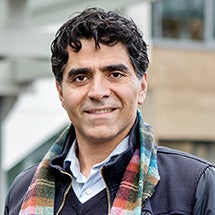
Aydin Cihangir came to the Netherlands in 2000 for freedom of expression and the higher quality of education.
What is your job? ‘I am co-director and teacher at Foutloos Rekenen, an educational institution that I set up with my wife and one of my brothers. We teach maths to children between the ages of 9 and 12. Most schools teach children various methods of arithmetic that keep on changing. We give them eight arithmetical recipes that always work and ensure that they become extremely good at them.’
How did you come up with the idea? ‘When my eldest son went to 7th grade, several of his classmates had trouble with arithmetic, so their parents asked me whether I could tutor them one Sunday. That’s how I found out that the children would understand the material better when I explained it, than they would from reading the book at school. At the time I was training to become an actuary, but teaching gave me much more satisfaction. This allows me to really change lives: it makes the children more confident and gives them a head start at secondary school. Several of my former pupils have now started STEM degrees.’
What was it like to leave Turkey to come to study here? ‘It was tough: when I arrived here I didn’t speak a word of Dutch or English. As a result, I’d sometimes have to work three times as hard as the others. The VASVU year [bridge year for foreign-language speakers, ed.] helped me a lot in adjusting to life in the Netherlands. The main goal was to prep us for our studies and for student life, and all teachers helped us keep that in mind. We also learned about Dutch society and culture during our mathematics and English lessons.’
What did you think of your studies? ‘The content was very interesting, I really fell in love with mathematics. I also found the atmosphere very special. There were only a few of us, up to 20 per year, so you’d know everyone in each year. Almost all of the teachers at Foutloos Rekenen are people I met during my studies. We have a great understanding of one another, so working together is very pleasant.’ (FS)
Help more refugees make it this far
The UAF supports refugee students during their studies and helps them find a job. Would you like to support this important initiative? Your donations or help are more than welcome.

